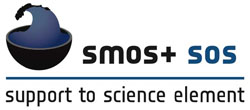First Announcement for the Ocean Salinity Science & Salinity Remote Sensing Workshop 26th - 28th November 2014, Met Office, Exeter, UK

The scientific relevance for measuring Sea Surface Salinity (SSS) is more and more recognized in the ocean community. SSS plays an important role in the dynamics of the thermohaline circulation, ENSO, and is the key tracer for the marine branch of the global hydrological cycle, which comprises about 3/4 of the global precipitation and evaporation budget. Ocean surface salinity is of key importance for land-sea (river plumes), air-sea (ocean stratification, barrier layers, CO2 fluxes) and ice-sea interactions, marine biology, marine biogeochemistry and marine bio-optics. Sea surface salinity is also essential to understanding the ocean’s interior water masses, knowing that they derive their underlying temperature and salinity properties during their most recent surface interval. In addition to the in situ observing network, both SMOS and Aquarius missions are providing sea surface salinity estimates at L-band but based on different technologies deployed in space. Results obtained so far demonstrate the strong scientific potential of the novel information provided by these new data sources. The focus of this workshop will be:










